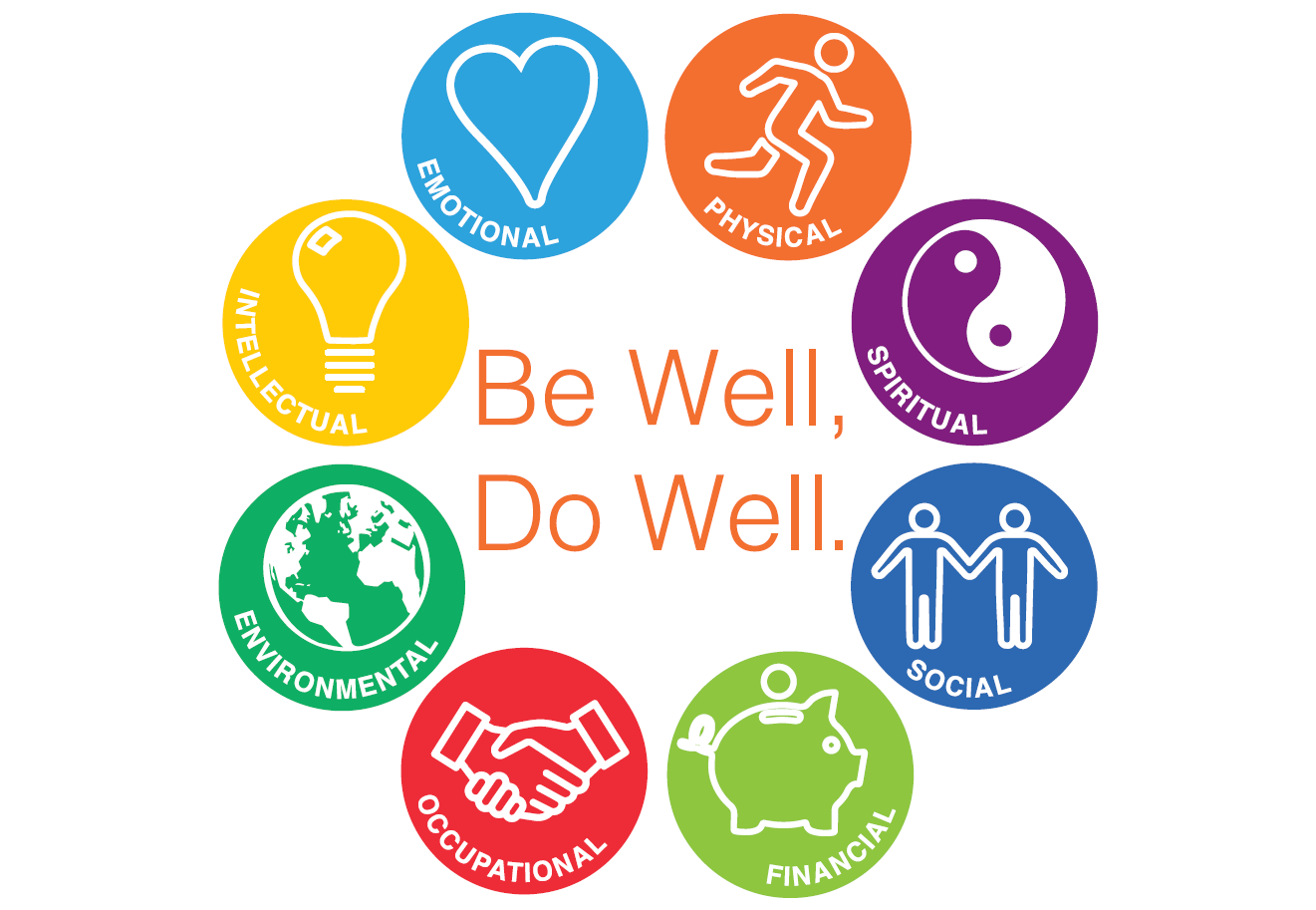Promoting Mental Wellness: 5 Steps To Greater Community Acceptance

Table of Contents
Educate Your Community About Mental Health
Addressing the pervasive stigma surrounding mental illness is crucial for promoting mental wellness. This requires a multifaceted approach that combines myth-busting with education on mental health literacy.
Debunk Myths and Stigmas
Many harmful misconceptions surround mental illness, hindering help-seeking behaviors. These myths often portray mental illness as a character flaw or a sign of weakness.
- Myth 1: "Mental illness is a sign of weakness." This is patently false. Mental health conditions are complex and often rooted in biological, psychological, and social factors.
- Myth 2: "People with mental illness are violent." The vast majority of individuals with mental health conditions are not violent. In fact, they are more likely to be victims of violence than perpetrators.
- Myth 3: "Mental illness is incurable." Many mental health conditions are treatable, and with the right support, individuals can lead fulfilling lives.
The World Health Organization (WHO) [link to WHO website] reports that one in four people will experience a mental health condition at some point in their lives, highlighting the prevalence and normalcy of these conditions. The National Institute of Mental Health (NIMH) [link to NIMH website] offers further statistics and resources to support this understanding.
Promote Mental Health Literacy
Understanding mental health conditions, their symptoms, and available treatments is paramount. This knowledge empowers individuals to seek help for themselves or others, and promotes early intervention.
- Attend workshops and seminars offered by local mental health organizations.
- Utilize online resources such as those provided by the NIMH and the WHO.
- Learn about common mental health conditions like anxiety, depression, bipolar disorder, and schizophrenia. Understanding the nuances of different conditions allows for more effective support.
Early intervention is key in improving outcomes and reducing the long-term impact of mental health conditions.
Create Safe and Supportive Spaces for Open Dialogue
Open and honest conversations are the bedrock of a supportive community. Creating safe spaces where individuals feel comfortable discussing their mental health experiences is vital for reducing stigma.
Foster Open Conversations
Initiating dialogues about mental health can be transformative. These conversations shouldn't be confined to clinical settings; they should permeate all aspects of society.
- Schools should implement mental health awareness programs and provide support services.
- Workplaces can establish safe spaces for employees to discuss their struggles.
- Community centers can host events and workshops promoting mental wellness.
Emphasize active listening and empathetic communication in all discussions. Social media can also play a constructive role in disseminating information and fostering supportive online communities.
Encourage Peer Support
The power of peer support should not be underestimated. Connecting individuals with others who understand their experiences can be incredibly therapeutic.
- Support groups provide a platform for sharing experiences and receiving mutual support.
- Online forums offer anonymity and accessibility for those who may not feel comfortable attending in-person groups.
- Community initiatives like buddy systems or mentoring programs can help connect individuals with one another.
Sharing experiences reduces feelings of isolation and provides valuable emotional support.
Advocate for Inclusive Policies and Resources
Policy changes are crucial for creating a truly inclusive environment for individuals experiencing mental health challenges.
Support Mental Health Initiatives
Advocating for policy changes that promote accessible and affordable mental healthcare is essential for improving mental wellness outcomes.
- Increased funding for mental health services is crucial for addressing the growing demand for care.
- Improved access to treatment, particularly in underserved communities, must be a priority.
- Contact your local representatives and advocate for policies that support mental health initiatives.
Accessible and affordable mental healthcare is a fundamental human right.
Promote Workplace Wellness Programs
Employers have a significant role to play in promoting mental wellness within the workplace.
- Employee assistance programs (EAPs) offer confidential counseling and support services.
- Offering mental health days acknowledges the importance of prioritizing mental well-being.
- Flexible work arrangements can help employees manage stress and maintain work-life balance.
Investing in employee mental health improves productivity, reduces absenteeism, and boosts employee morale.
Challenge Negative Representations in Media and Culture
Media representations profoundly influence public perception of mental illness. Challenging negative stereotypes and promoting positive portrayals is a critical step in reducing stigma.
Promote Positive and Accurate Portrayals
Media has a responsibility to depict mental health conditions accurately and sensitively.
- Support media productions that portray mental health conditions authentically and without perpetuating harmful stereotypes.
- Engage with media producers and advocate for responsible reporting on mental health issues.
- Challenge negative portrayals whenever possible, promoting a more balanced and nuanced perspective.
Celebrate Mental Health Awareness
Raising awareness through campaigns and events is crucial in changing perceptions and fostering a culture of support.
- Participate in events like World Mental Health Day.
- Organize or support local initiatives promoting mental wellness.
- Celebrate recovery and resilience – highlighting the journeys of those who have overcome mental health challenges.
Personalize Your Support and Actions
Promoting mental wellness requires both collective action and individual responsibility.
Practice Self-Care
Supporting others requires prioritizing your own mental health. Burnout is a real risk, so self-care isn't selfish; it's essential.
- Incorporate regular exercise, mindfulness practices, and healthy eating habits into your routine.
- Set boundaries to protect your time and energy.
- Don’t hesitate to seek support when you need it.
Be an Ally
Small acts of kindness and support can make a significant difference in someone's life.
- Listen empathetically and without judgment.
- Offer practical assistance when possible.
- Regularly check in on friends, family, and colleagues.
Conclusion:
Improving mental wellness requires a concerted effort involving education, advocacy, and personal support. By debunking myths, creating safe spaces, advocating for inclusive policies, challenging negative representations in media, and prioritizing self-care, we can collectively build a community that truly supports and celebrates mental health. Let's all commit to promoting mental wellness, supporting mental wellness, and enhancing mental wellness in our communities. Take action today, and be a part of the change.

Featured Posts
-
 Automaker Confusion Navigating The Complexities Of Trump Era Tariffs
May 03, 2025
Automaker Confusion Navigating The Complexities Of Trump Era Tariffs
May 03, 2025 -
 Smart Rings Can Technology Build Or Break Trust
May 03, 2025
Smart Rings Can Technology Build Or Break Trust
May 03, 2025 -
 Fortnite Players Revolt Over Music Change
May 03, 2025
Fortnite Players Revolt Over Music Change
May 03, 2025 -
 Como Escolher A Melhor Mini Camera Chaveiro Para Voce
May 03, 2025
Como Escolher A Melhor Mini Camera Chaveiro Para Voce
May 03, 2025 -
 Remembering Poppy Atkinson A Joint Tribute From Manchester United And Bayern Munich
May 03, 2025
Remembering Poppy Atkinson A Joint Tribute From Manchester United And Bayern Munich
May 03, 2025
